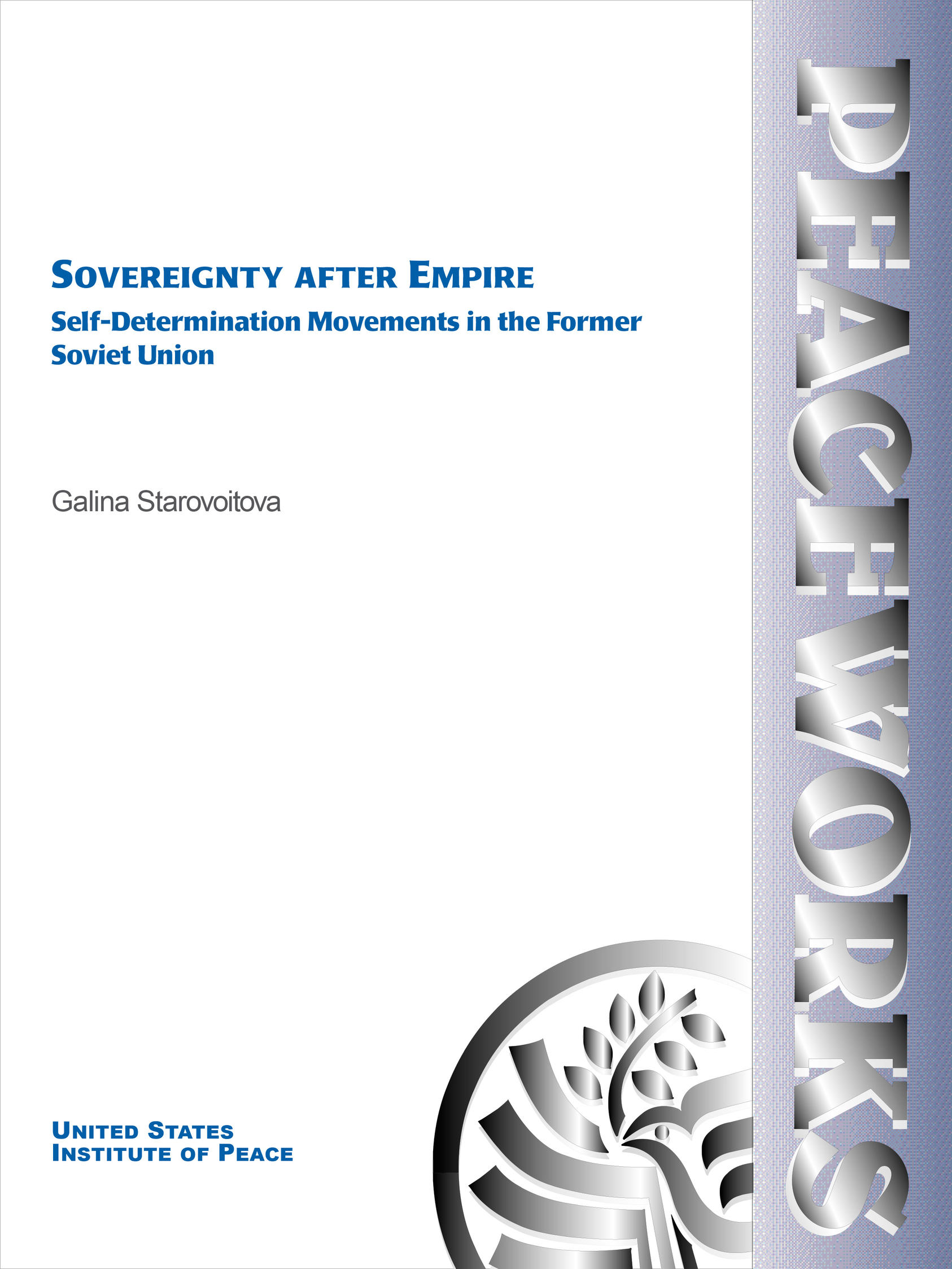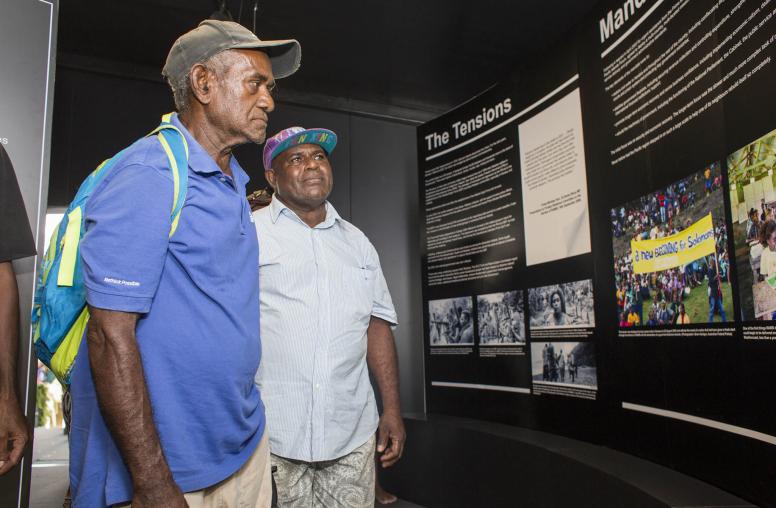Sovereignty after Empire: Self-Determinationa Movements in the Former Soviet Union
Peaceworks No. 19
This report examines the prominent self-determination movements in the former Soviet Union and arrives at some tentative criteria that could be used to assess their legitimacy. In contrast to futurists' visions of the "global village," where national loyalties and borders erode under the forces of globalization and decentralization, Starovoitova points to the resurgence of nationalism in the post–Cold War era, particularly on the Eurasian continent.

This report examines the prominent self-determination movements in the former Soviet Union and arrives at some tentative criteria that could be used to assess their legitimacy. The need for such criteria is apparent. In contrast to futurists' visions of the "global village," where national loyalties and borders erode under the forces of globalization and decentralization, Starovoitova points to the resurgence of nationalism in the post–Cold War era, particularly on the Eurasian continent.
Galina Starovoitova is a deputy in the Russian State Duma, having won a St. Petersburg single-member district in the country's December 1995 legislative elections. Starovoitova served in the Congress of People's Deputies during 1989–91 and was an adviser on ethnic relations to President Yeltsin until 1992. She is also co-founder of the Democratic Russia movement and was an early candidate in Russia's 1996 presidential elections.




